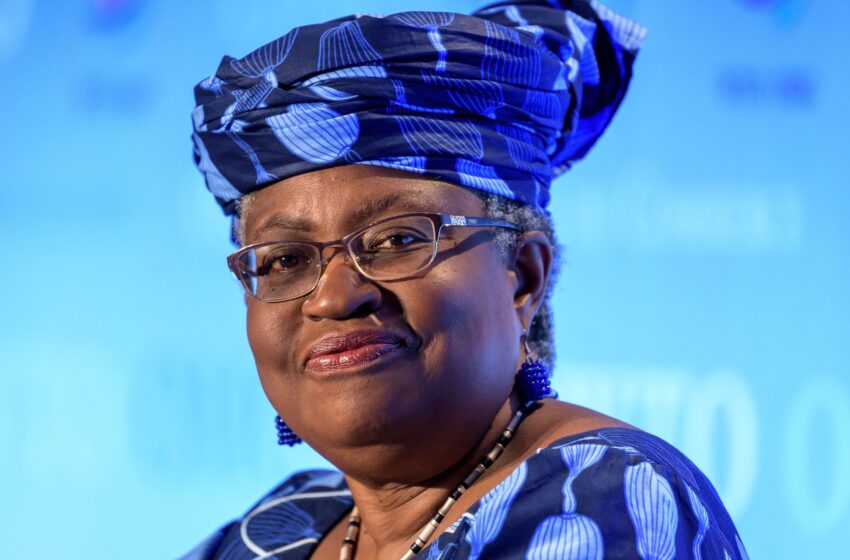Can women be the change Nigeria’s politics needs?

A picture taken on July 15, 2020, in Geneva shows Nigerian former Foreign and Finance Minister Ngozi Okonjo-Iweala smiling during a hearing before World Trade Organization 164 member states’ representatives, as part of the application process to head the WTO as Director General. – South Korean trade minister Yoo Myung-hee on February 5, 2021 abandoned her bid to become head of the WTOm, Seoul said, clearing the way for Nigeria’s Ngozi Okonjo-Iweala to become the global body’s first woman and first African director-general. (Photo by Fabrice COFFRINI / AFP) (Photo by FABRICE COFFRINI/AFP via Getty Images)
By Anjolaoluwa Ogunpitan
Since the return to democracy in 1999, Nigeria’s political system has seen significant developments. Yet, despite women making up nearly half of the electorate—47.5% of registered voters according to INEC’s 2023 data—their representation in leadership remains minimal.
In other fields, Nigerian women have continued to excel. The Super Falcons clinched their 10th AFCON title, D’Tigress secured three consecutive AfroBasket championships, and Ngozi Okonjo-Iweala rose to global prominence as Director-General of the World Trade Organization. Despite these inspiring feats, the country still struggles to believe in the possibility of a female president or governor.
Over the years, women such as Sarah Jibril, who contested the presidency multiple times, have faced uphill battles. Famously, she secured just one delegate vote out of over 3,500 during the 2011 PDP primary. Similarly, Oluremi Sonaiya in 2015 and Oby Ezekwesili in 2019 garnered minimal votes, highlighting the difficulties female candidates face in gaining political traction.
At the state level, the story is no different. In 2023, Aishatu Ahmed Binani made history as the first woman to clinch a governorship ticket of a major political party, though her campaign ended in controversy after an illegal declaration episode in Adamawa. In Oyo State, Bolanle Amina Sarumi Aliyu (BASA) also made history in 2019 as the first female governorship aspirant, but her campaign was weakened by reports—later denied—that she had stepped down days before the election.
No woman has yet been elected governor in Nigeria. The only exception remains Lady Virginia Etiaba, who briefly served as acting governor of Anambra in 2006 following the impeachment of Peter Obi.
In the legislature, women’s representation has consistently remained under 10%. The Senate, with 109 seats, has had only a handful of women such as Oluremi Tinubu, Aishatu Ahmed Binani, Stella Oduah, and Natasha Akpoti-Uduaghan. The House of Representatives fares little better, with women occupying just 3–6% of its 360 seats. Notable figures like Patricia Etteh and Mulikat Akande-Adeola once held influential positions, but the numbers remain discouraging. In state assemblies, the imbalance is also stark—Oyo State, for instance, has just two women among 32 lawmakers, meaning that even committees on women’s affairs are often dominated by men.
This reality contrasts sharply with countries of similar or even lower economic standing that have elevated women to top leadership. Liberia elected Ellen Johnson Sirleaf as president, while Germany, Finland, and Iceland have all had female heads of state or government who served with distinction.
Several barriers persist in Nigeria: lack of trust among women themselves, the harsh and expensive nature of politics, financial constraints, and gender-based exploitation. To address these gaps, the National Assembly has discussed affirmative action measures, including a 35% quota for women in political offices.
Yet, as the saying goes, power is not served à la carte. Nigerian women must continue to rise, organize, and demand their rightful place in governance. Figures like BASA, who has already declared her intention to contest the Oyo governorship in 2027, symbolize both the challenges and the hope ahead.
As Nigeria heads toward another election cycle, the question remains: will women seize the opportunity to reshape the nation’s political destiny? The potential is undeniable, and unlocking it could be the key to a more inclusive and progressive political future for our dear country.

